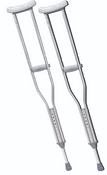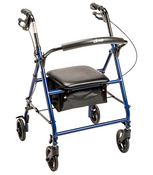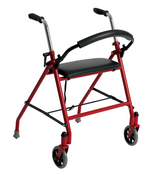The ability to move around, transfer from one position to another, get up and sit down, walk and navigate one’s environment are essential elements to functional mobility. However, for some, due to injury, illness, disorder, or condition, the ability to perform these tasks is limited if not impossible without various levels of assistance. They are:
- Dependent: when the individual is unable to contribute at all to a mobility effort. An assistant or assistive device must perform all of the work of mobility.
- Maximum Assist: when the assisting person or device are required to perform 75% of the work of a mobility task, while the individual performs 25% of the work.
- Moderate Assist: when the assisting person or device are required to perform 50% of the work of a mobility task, while the individual performs 50% of the work.
- Minimal Assist: when the assisting person or device are required to perform 25% of the work of a mobility task, while the individual performs 75% of the work.
- Contact Guard: when the assisting person has one or two hands on the body – to help with balance - but provides no other assistance to perform the functional mobility task.
- Stand-By Assist: when the assisting person does not touch the person or provide any assistance. An assistant is present for safety should the person lose balance or need help in maintaining safety.
- Independent: when the person can perform the functional task with no help and is safe in doing so.
Consequently, there are assistive devices that have been created to help compensate for certain limitations that require varying levels of assistance, so that the individual can maintain as much independence as possible in performing these daily activities. These include:
- Canes
- Crutches
- Gait belts
- Rollators
- Walkers
- Unweighting Systems
ProHealthcareProducts.com carries a wide-variety of gait assists with different features to assist in functional mobility efforts.










